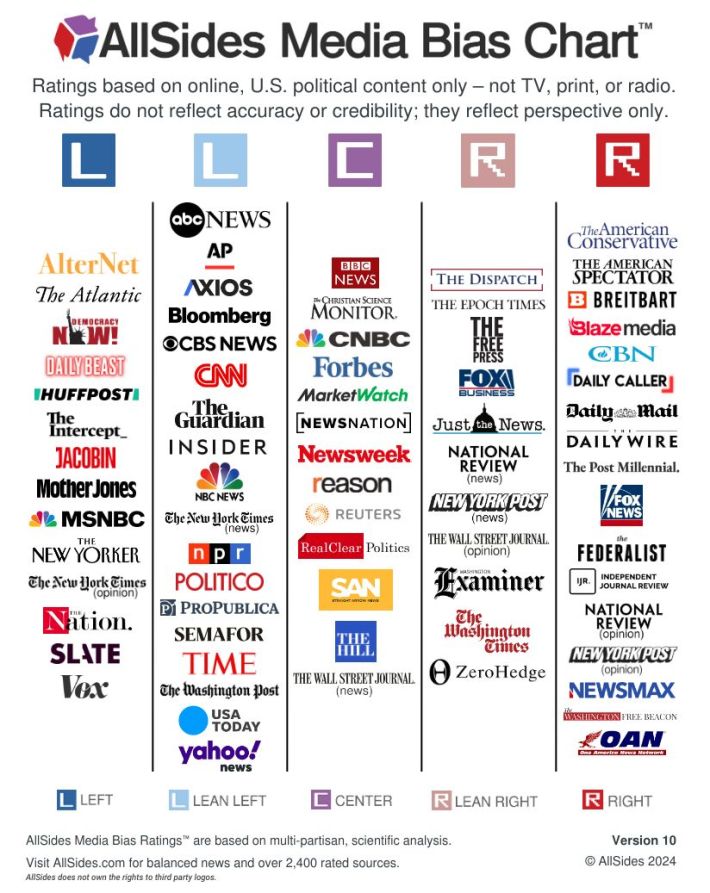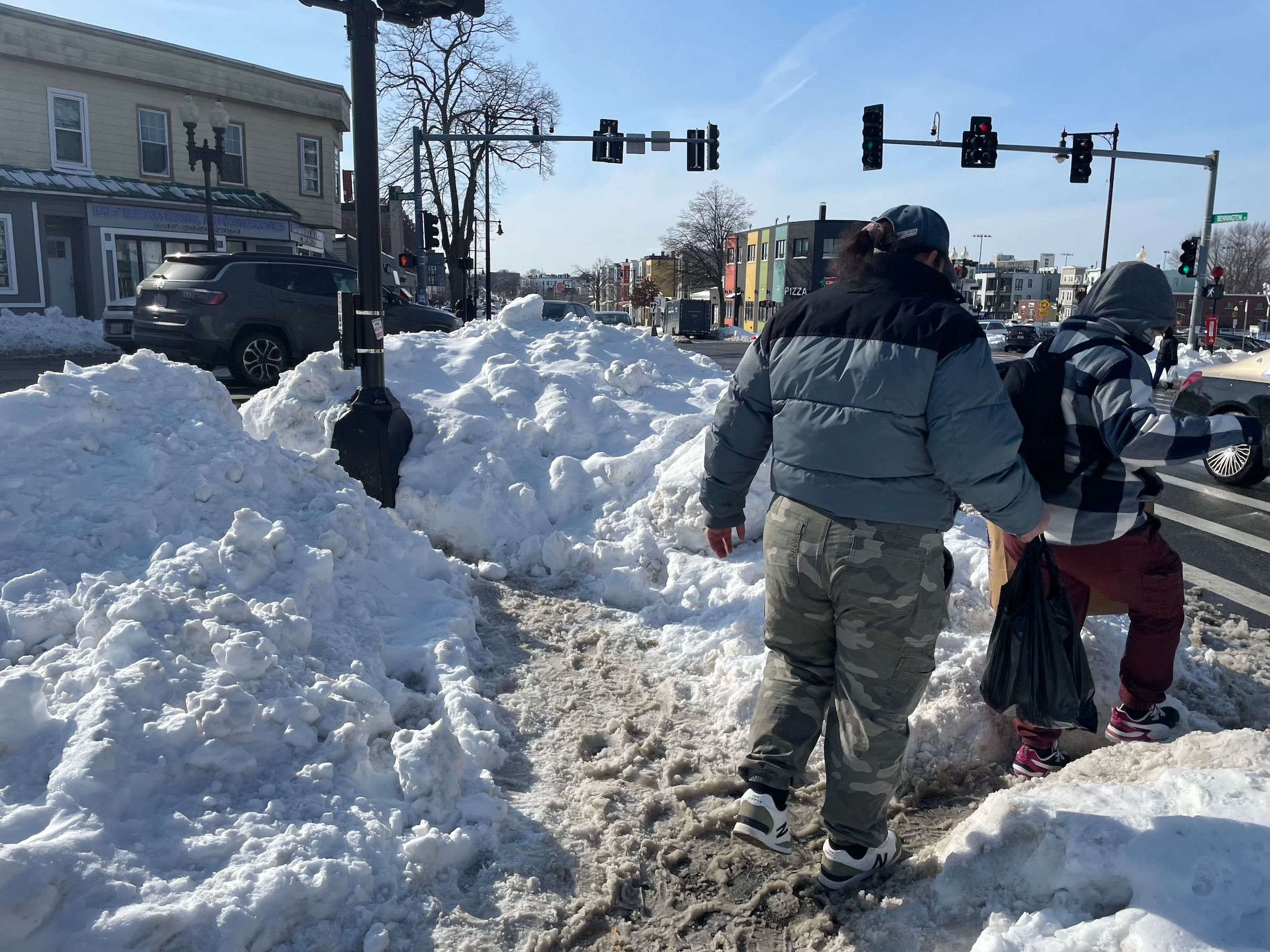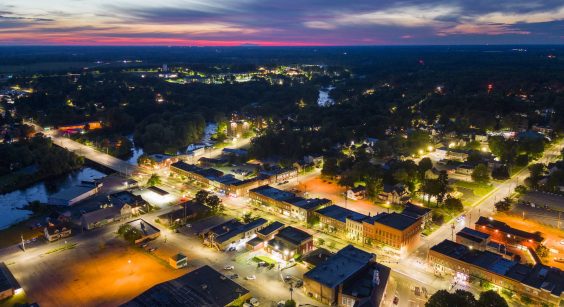The last week has been a blur, and I've gone through most of my stages of grief in this situation – muting, blocking, unfollowing, planning to leave the country, checking the House of Representatives races, not eating all day, eating lots of pasta, planning to stay and fight – wait, why should I fight for a place that keeps showing me it won't fight for me again? And now, finally, I find myself at the “writing” stage, hence, this piece.
There are many other think pieces about how this happened and how to proceed (and less constructive ones looking to blame and decree who was right and who was wrong), and I implore you to explore some of those. While I do find the discussions about the Biden-Harris administration, the election timeline, the Harris campaign, the global climate we're in, the Democratic Party agenda, the state of the left and all the players needed to recalibrate and coalition build to reclaim elected offices early and often extremely important to this moment, I won't get into a post-mortem on that here. What I do want to reflect on is where I think we’re at, and where we can go from here.
"Nobody's free until everybody's free."
- Fannie Lou Hamer
What was particularly upsetting for me this election (and the last two) was knowing what America is in all its colonialist, racist, sexist history and current realities, yet imagining that America could be capable of maybe, ever so slightly, moving away from these ingrained systems of injustice through the energy and hope Vice President Harris inspired that I had not felt probably since Obama – then being monumentally let down to a new low.
Harris's election bid, result, and the public's response is the most looming example of the glass cliff, a phenomenon where women of color are set up to take on a task of great risk and responsibility, and when they do not succeed as anticipated, they become a scapegoat, opening the floodgates for racist, misogynistic spite, second-guessing of their qualifications, and undermining trust in women of color in similar positions.
There is something to be said about what I have seen in these last few months: a Black woman who has worked in every branch of the government and who has dedicated her life's service to the people who faced some fair critiques and blatant misogynoir (the specific flavor of misogyny reserved for Black women who live at the intersection of racism and sexism) while her opponent could not often string coherent ideas together, proposed vague policies with little to no details (see: "concepts of a plan"), and engaged in and enabled fear-inducing and hateful rhetoric.
I, like many other Black women, have been raised on the adage that I have to work twice as hard to get half as far, and that has rang true for me my entire life. Seeing this overqualified candidate do leaps over moving goalposts up against a painfully mediocre one for whom the bar was lowered beneath the ground was incredibly frustrating to watch, and is one of the lasting stings coming out of the election outcome.
Though she may not have run on the messaging of her identity as a Black and South Asian woman, the second Black woman to run for (and the first to win!) a major party nomination for the presidency since Shirley Chisholm, I am uplifted by the impact of her representation on me and many others across the country and beyond and will stay with me for a long time.
Beyond the candidates, there are a lot of policy issues that shaped this election, and I’m not here to invalidate anyone's struggles. However, the fact that so many people are either passively accepting or actively supporting the destruction of others' lives as an easy response to economic struggles amid a global pandemic, “ending” foreign conflicts through backing violent oppressors, or manipulating fears over a normal aspect of human life, reveals deep fractures in our society. It highlights a failure to see others’ humanity as anything more than an inconvenience or an obstacle, simply because we can't relate to their experiences. More on that below.
White Supremacy, Patriarchy: Double L
White supremacy is so violent and pervasive, it makes me sick. Before I could name it, it was in the social structures I grew up in at dance class. It was in the halls of my predominantly white, Catholic high school. It followed me through my college experience. It was an unshakable, non-negotiable, oppressive structure during my time at a Boston-based education policy research think tank that burned me out and dimmed my hope for progress. My life has been cultivated by and in the Greater Boston Area, and I can attest to it firsthand that this is a very real problem here, as it is across this country.
White supremacy and the patriarchy are poisons that will ultimately hurt all of us, but it will of course have the most immediate and devastating effects on those whom these systems were intentionally designed to harm. People upholding these systems—whether its because they’re privileged in them, or they simply hope for runoff benefits that the privileged reap—are displaying American individualism at its fullest and its worst. Clinging to these systems instead of confronting our nation’s challenges directly by engaging in real, vulnerable, liberatory work, is a broken, ugly way to approach each other and humanity.
And I cannot impress enough where class comes into play here, in addition to race and gender. It's certainly more complex than what I'm about to get into, but one thing I find extremely troubling in all of this is how people with unnecessary amounts of wealth are selling the bold-faced lie that people without the extreme privilege, wealth, access, and systemic advantages they've had from the moment they were born, can somehow be just like them through fan worship and spending their hard-earned money on their overpriced ugly merch and grifts. Those who are being sold that lie - and I do mean literally sold - truly deserve better than this.
Instead of seeing our literal neighbors and community as those we can come together with to build, learn, support one another through very real and unfair hardships, we have bad-faith politicians and policies, price-gouging, earth-boiling corporations, and wealth-hoarding egomaniacs. They feed us a a culture of white supremacy, patriarchy, individualism, blame, othering, fear, fences and walls, to promote an agenda of seizing more power and wealth at the expense of others.
These bad-faith actors have convinced many in this country that this exploitive way of life is the easier and more effective option of how to vote and how to live, but trust and believe that this path is neither of those things.
While policies and mindsets certainly played their roles in shaping this election, the people behind the votes have also been weighing on my mind. NBC released exit polls for how people who did vote voted by demographic, and there have been plenty of think pieces on the rise of misinformation and cult of personalities combined with the ever-expanding internet and the radicalization of young white men, and how Latino men voted, the overdue conversation about who “Latino” encapsulates, and how those voters are not a monolith.
I’d briefly like to touch on the white women vote, the 37 percent of voters who voted for Trump at 53 percent. I have been socialized in some predominantly white spaces, and I have built community with white women in particular. I have had conversations with all my friends and family in every election regarding their plans to vote, the concept of civic engagement in this country and this system as a whole, and I have held them all in my heart and my mind when I cast my votes, every time. This election was no different.
I had hope in seeing the "White Women for Harris" movement online that broke records for how many people could be on one Zoom call at one time. I had hope in conversations with white women in my circles. I had hope in seeing white women in my social media networks sharing infographics and critical messaging. I suppose I misplaced my faith in the volume of support I was seeing online, because I have been met with a deafening silence leading up to and since election night.
As I've navigated my identity and how I show up in spaces for my entire life, I have illuminated friends on Black culture, the Black experience, and each intersection of my identity that makes me who I am. I have answered questions about new slang, and music. I have exposed friends to Haitian music, food, and cultural events.
I have broken down controversial policies and their impact on the rising maternal mortality rate for Black women and how it’s changed my thoughts on having children. I have explained why blackface and racial slur scandals led to your favorite celebrities being “canceled.” I have clarified why touching my hair every time I styled it was a microaggression. I have shared why you telling me about the racist or performative thing your parent or partner said after I left, with no intent to hold them accountable, is harmful. I have detailed my burnout and questioned my belonging in the work I love, after yet another white woman colleague treated me as a pet or project until feeling threatened by my qualifications, skills, ambition, and identity – then turned to bullying, gaslighting, and undermining, only to be protected by the refusal to compromise on the white supremacy both in the organization and in those upholding it. I have laid out why leaving me alone in Faneuil Hall after the bars closed, with a man who had just racially and sexually harassed me trailing behind, to catch the Uber you called without telling me, was unforgivable.
There has been growth, change, and repair, but the regular pain, disappointment, and loss has amplified the growing voice in my head to stop sharing space with those who see my humanity on vacation or in the group chat, but not at the polls or in socioeconomic structures.
I no longer have space in my life for close relationships devoid of allyship, and welcome all who are willing to live in those values – not just in our echo chamber, but especially to those they are in proximity to who think that this president-elect, his colleagues, and their agenda that calls for abortion bans, tariffs, mass deportations, police immunity, silencing opposition, scapegoating, and fearmongering can productively address American concerns, and in the voting booth.
Boo and Vote
While systemic issues of racial injustice and inequity are personal battles, they are also political ones, and every vote can help dismantle these cycles of harm. And a word on voting. It is imperfect, it is far from the only way to get engaged in the political process, and it is imperative to use as many levers as possible towards change – from organizing, to coalition building, to protesting, to holding elected officials' feet to the fire, and so much more.
As someone who works at the polls and encourages voting full-throatedly, I completely understand people feeling disaffected by the system, feeling not met where they're at, and feeling like their vote doesn't matter. In theory, in this system, you vote for people who will represent your interests in government, and if they're not doing that, you vote them out, or recall them.
However, as the campaigns heated up, dangerous policies started gaining traction, and ghoulish billionaires started emerging from their supervillain lairs and hideous Cybertrucks to suddenly get extremely involved by pouring a lot of money and influence into campaigns and the media covering them (I'm planning to be cross-posting between Bluesky and what's left of Twitter). It became clear that things were getting dark, and the ability to sit this one out became unthinkable to me.

Yes, this has been yet another "most important election of our lifetimes", but there is something to be said here, a week removed as we stare down the barrel of this administration and all its consequences. As we speak, cabinet choices antithetical to the federal departments they will serve are being announced every day. Young, loyal, extremist judges will be handpicked and approved for the Supreme Court by this Republican White House and Senate.
We and our future generations are at stake. The environment is at stake. Trans rights are at stake. Palestinian and Ukrainian lives are at stake. Women’s lives are at stake. Immigrant lives are at stake. While I can go on, the point here is that the conversation is shifting from what harm we can reverse to what blows we can prepare for and shield each other from.
If you sat this one out, know that your vote has power, and not showing up at all, regardless of whether it is intentional or not, is allowing the status quo to continue on. Your vote – or your silence – will affect your life and the lives of others, through the state-level elected officials who vote on policies that impact your county, to local officials who speak for you and your neighborhood, to ballot questions and measures that can change your day-to-day life as soon as the next day.
If you're in Massachusetts and know a teacher, a student, someone who drives for Uber or Lyft, anyone who works in a restaurant, anyone who addresses their mental health with the use of medicinal mushrooms, then your votes on Ballot Measures 2, 3, 4, and 5 this year would have impacted their careers, educational journeys, and personal wellbeing.
There are races in this country that are won by mere votes; I'm reminded of Boston City Councilor Julia Mejia, who won her first election to the council in 2019 by exactly one vote. I implore you to consider this come next election season, and remember: you might not do politics, but politics will do you.
So, What Now?
I’m scared, but until it's time for the next vote to be cast, it’s high time to engage with our communities and rebuild.
What I’m about to suggest is not a one size fits all, but some takeaways to consider that are acts of resistance and repair. Take what applies to you.
- Rest. The doomerism from here on out will feel endless, and the stress of survival mode will not do your mind or your body any favors. Healing and restoration is resistance, and are needed for our collective liberation. And I’m looking at you in particular, Black women -- despite the outcome, we've shown up, and shown out. Take care of yourself.
- Reject bad-faith actors. This political landscape is both new yet bone-chillingly familiar. Take the time to vet your media sources. Call out billionaires who have ambitions of plutocracy and oligarchy (rule by the wealthy and rule by a few, respectively) and influence on the media we see and the politicians paraded before us. Run for office. Be selective on who you give your money and votes to. Advocate for policy change. Reject fascism and fascists in all forms.
- Allies in privileged positions, live in those values. Take responsibility for any role you may have in perpetuating systems of harm. Talk to your friends and family, have uncomfortable conversations. Pass the mic, listen to and support the marginalized people (across race, age, gender, sexuality, disability, all of it) you’re claiming to be allies to in actualizing their work -- the people closest to the pain should be closest to the power. Do this early, and often.
- Accept that you're a lifelong learner. We're constantly evolving, and in that, we have to be open to letting go of ideas we once believed and welcoming new ones. Learning doesn't solely happen in the classroom, and educators don't look any one way. Whether through school, or in our communities, there are always opportunities to challenge and unlearn harmful behaviors, biases, socialization, and systems. Never be the smartest person in the room, resist and reframe the negative connotation and fear of "being wrong" as a chance to grow.
- Take the conversations and community offline. While the internet is a valuable resource for information gathering, sharing and community building, it is currently under a growing siege of misinformation and slop, outpacing media literacy education and good practices. Beyond that, more than ever, we need to talk to each other and see each other. Let's truly know our neighbors, fight isolating ourselves from one another, and work together to build a bigger tent that includes so many more of us with similar – but most likely not identical – goals. Join organizations or grassroots movements, show up to local meetings, engage in mutual aid.
- Living freely, openly, and boldly is resistance in and of itself. Be authentically who you are without apology (as long as you're not harming people), and hold onto hope, joy, and progress. These are some of the most radical things we can do in the face of those who want to silence us, break us down, or force us to conform.
I’m not positive where this country is going, but I have every intention of moving forward, to push for a world where everyone has an equitable shot at defining and living the life they so choose to. I hope you’ll join me.





